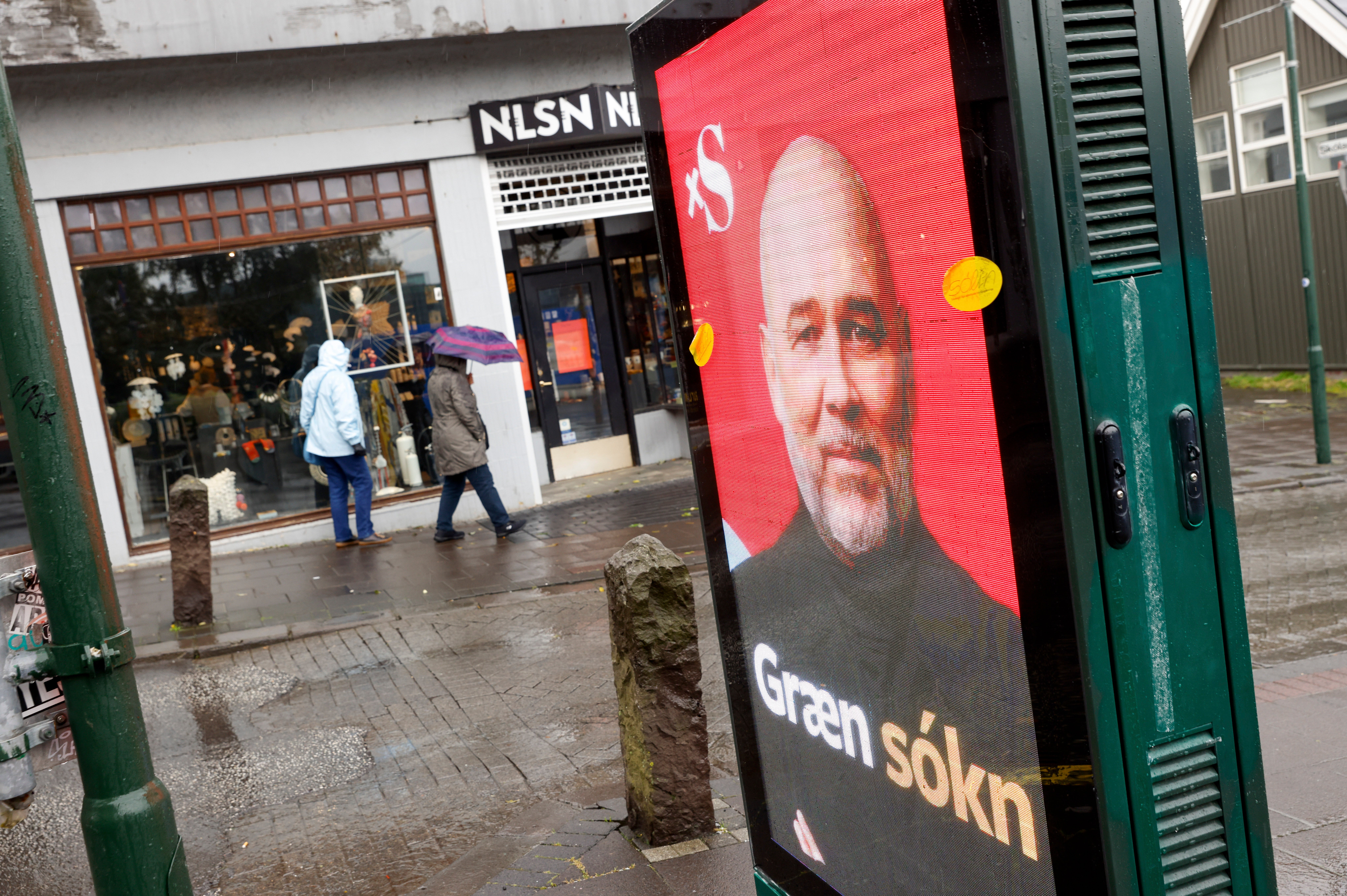Icelanders vote in volatile election with climate in mind
Icelanders are voting in a general election dominated by climate change, with an unprecedented number of political parties likely to win parliamentary seats

Your support helps us to tell the story
From reproductive rights to climate change to Big Tech, The Independent is on the ground when the story is developing. Whether it's investigating the financials of Elon Musk's pro-Trump PAC or producing our latest documentary, 'The A Word', which shines a light on the American women fighting for reproductive rights, we know how important it is to parse out the facts from the messaging.
At such a critical moment in US history, we need reporters on the ground. Your donation allows us to keep sending journalists to speak to both sides of the story.
The Independent is trusted by Americans across the entire political spectrum. And unlike many other quality news outlets, we choose not to lock Americans out of our reporting and analysis with paywalls. We believe quality journalism should be available to everyone, paid for by those who can afford it.
Your support makes all the difference.Icelanders were voting Saturday in a general election dominated by climate change, with an unprecedented number of political parties likely to win parliamentary seats.
Polls suggest there won’t be an outright winner, triggering complex negotiations to build a coalition government.
A record nine parties could cross the 5% threshold needed to qualify for seats in Iceland's parliament, the Althing. Upstart parties include the Socialist Party which is promising to shorten the workweek and nationalize Iceland's fishing industry.
High turnout is expected, as one-fifth of eligible voters have already cast absentee ballots.
Climate change is high among voters' concerns in Iceland, a glacier-studded volcanic island nation of about 350,000 people in the North Atlantic.
An exceptionally warm summer by Icelandic standards - 59 days of temperatures above 20 degrees Celsius (68 F) — and shrinking glaciers have helped drive global warming up the political agenda.
Polls show strong support for left-leaning parties promising to cut carbon emissions by more than Iceland is already committed to under the Paris climate agreement. The country has pledged to become carbon-neutral by 2040, a decade ahead of most other European nations.
The current government is a coalition of three parties spanning the political spectrum from left to center-right and led by Prime Minister Katrin Jakobsdottir of the Left Green Party It was formed in 2017 after years of political instability.
Jakobsdottir remains a popular prime minister, but polls suggest her party could fare poorly, ending the ongoing coalition.
“The country is facing big decisions as we turn from the pandemic,” Jakobsdottir said during televised debates on Friday night in which party leaders vowed to end Iceland’s reliance on oil and many wanted to raise taxes on the rich.